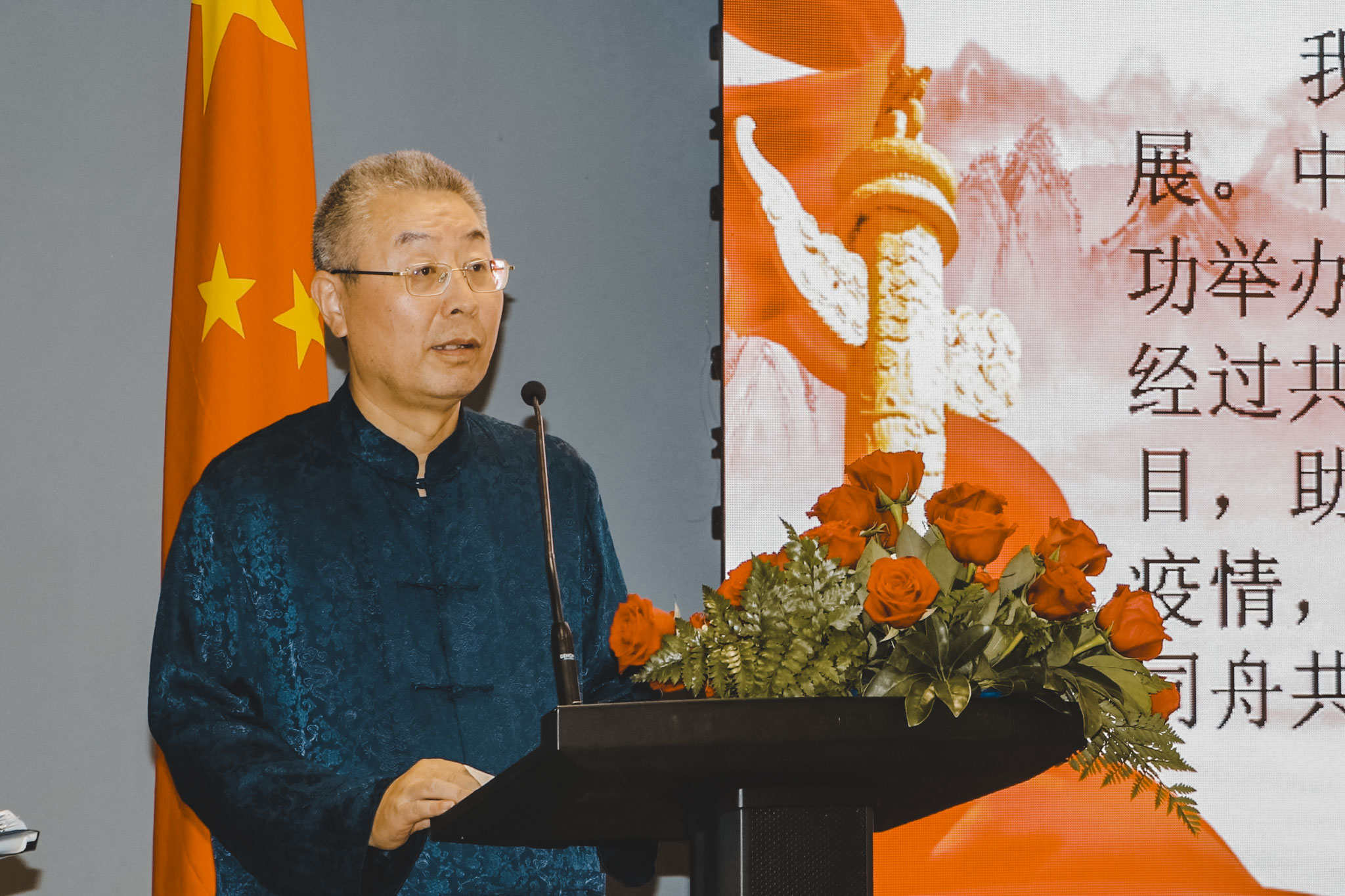If Mexico Imposes Tariffs on China, It Will Be Affected Itself
This article by by Ricardo Dávila originally appeared in the September 22, 2025 edition of La Jornada, Mexico’s premier left wing daily newspaper.
Beijing. The potential application of tariffs on Chinese products would affect Mexico itself, as it depends on Chinese imports in its trade chain with the United States, said Ma Hui, vice minister of the International Department of the Communist Party of China Central Committee.
In a meeting with Latin American media within the framework of the Belt and Road 2025 Media Cooperation Forum, Ma Hui explained that Mexico imports components, parts, and intermediate components from China, processes them, and then exports them to the United States, which is beneficial to Mexican economic development by generating a trade surplus. Therefore, taxing these products would not only harm Chinese interests, but ultimately Mexican interests as well, he said.
If Mexico applies tariffs to China, it would be validating the United States’ tariff policy, which has harmed the rule of law and global trade, the deputy minister stated.
Ma Hui also highlighted Mexican President Claudia Sheinbaum’s current position against a military intervention in Mexico, given the US’s global escalation against drug cartels. In this regard, he referred to the military maneuvers the US has carried out in the Caribbean as a form of pressure against Venezuela.
Mexico imports components, parts, and intermediate components from China, processes them, and then exports them to the United States, which is beneficial to Mexican economic development. If the current tariff policy is maintained, China will take countermeasures.
Ma Hui recalled that the United States had already established a policy of accusing other countries of drug trafficking, for example, when it blamed China for the production of fentanyl derived from the chemical precursors used in the substance. However, the vice minister clarified that China has already classified these precursors to control their export.
Ma Hui denounced the United States’ use of its ambassadors to actively block China’s commercial overtures and developments in Latin America.
He therefore called for a united front around a new model driven by international cooperation and support.

We Are Not Afraid
If the current tariff policy is maintained, China will take countermeasures. “We are not afraid,” the vice minister said. “For them, trade negotiations must be based on mutual respect.”
The deputy minister expressed strong opposition to the unilateral measures of the United States, particularly the imposition of tariffs and the launching of a “trade war, as they seriously harm the international economic order, multilateralism, and free trade.”
A central part of the speech is a strong criticism of U.S. policy toward Latin America, described as a continuation of the “Monroe Doctrine.”
He accused the US of attempting to control and interfere in the region and of actively sabotaging cooperation between China and Latin America.
He indicated that the US is accusing China of promoting corruption or undermining the rule of law, when, according to the source, it has historically been the United States that has intervened in the region’s internal politics, even going so far as to carry out armed invasions.
He said the US tariffs harm the global economic recovery and undermine equity, justice, and the international order. In short, they put the interests of the United States above the common global interest.

Latin America, a Fundamental Force of the Global South
China considers Latin America an important force in the world and a fundamental part of the Global South. The relationship is not based on geographical proximity, but on shared interests and goals, such as active participation in global governance, the defense of multilateralism, and free trade, Ma Hui said.
Chinese President Xi Jinping has demonstrated the region’s high importance by making six visits to Latin America and working with local leaders to establish a “Comprehensive Partnership of Cooperation” based on equality, mutual benefit, and joint development, the vice minister added.
A pillar of this relationship is party diplomacy. The Communist Party of China (CPC) maintains contact with more than 700 political parties and organizations in 170 countries, and specifically in Latin America, it has ties with 100 parties in 30 countries, he explained.
Ma Hui called on Latin American media to understand that the clarity of the foreign stance, led by the CCP, is based on non-interference, equality among nations (regardless of size), and cooperation for mutual benefit, in contrast to the U.S. model.
-
People’s Mañanera February 9
President Sheinbaum’s daily press conference, with comments on scholarships, return of mining concessions, PRIAN exposed, Bad Bunny Super Bowl, and aid to Cuba.
-
8 Million App Users, TV Soap Opera Ad… & the PAN Still Can’t Find New Members
In Mexico, where political parties are currently publicly financed, the right wing PAN has spent a staggering amount during its lackluster recruitment drive.
-
Mexico’s National Film Archives Workers Demand Dignity
“Our struggle is legitimate; we are not asking for privileges or luxuries, only better working conditions and job security. We also seek dialogue. This situation has become unsustainable.”




